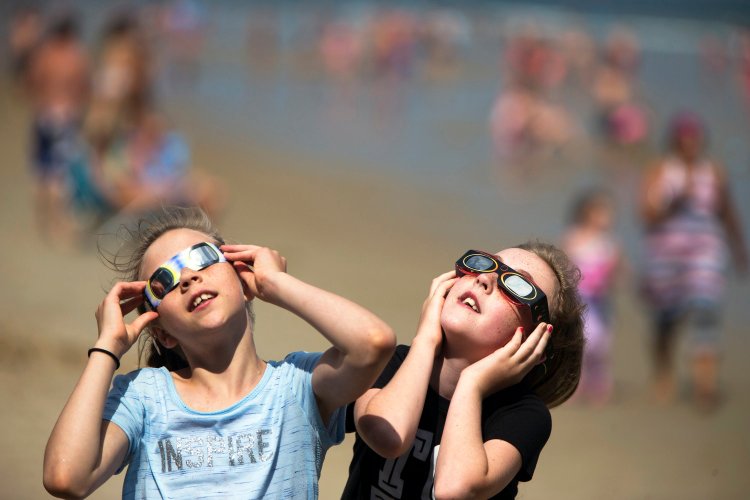Though he’s director of the University of Southern Maine’s Southworth Planetarium, Edward Herrick-Gleason has never actually seen a total eclipse of the sun. He’s worked at the Portland planetarium for 25 years, so when any kind of eclipse happens, he’s busy setting up programming for that day or explaining the phenomenon to the public. He’s currently preparing the planetarium for visitors on April 8, when a total eclipse will be seen in parts of Maine.

Edward Herrick-Gleason, director of the Southworth Planetarium in Portland. Photo by Susan Herrick-Gleason
On a scale of 1 to 10, how excited are you for this eclipse?
Twelve. In our modern world, we rarely pay much attention to the celestial. But a total solar eclipse is still something that really attracts our attention. This will likely be the most watched total solar eclipse in world history, because it’s going over large urban areas. So I’m very excited, not only because we get to watch rare a celestial event happening in real time, but because so many people are going to be observing this event.
Where is the best place to watch see the total eclipse in Maine?
The totality path (where the moon can be seen blocking the sun completely) will extend from the New Hampshire border, through Rangeley and Jackman and Moosehead Lake, Millinocket, up through Houlton and Presque Isle and on into New Brunswick. The closer you are to the center of the path, the duration will be more than three minutes. On the edges of the path, it might only last a minute.
What will people in southern Maine see if they look up during the eclipse?
Even down here in Portland, which is not in the path of totality, the sun will be about 94 percent obscured by around 3:30 p.m. That’s significant. You’ll see the moon moving across the sun, you’ll see it getting darker and notice the temperature drop. We won’t see the corona, we won’t see the other features of totality, but it will still be spectacular enough to command our attention.
Do people really need to wear those funny-looking glasses?
You always need to use your (eclipse) glasses to look at the sun. You can remove them if the eclipse is total, but we’re not going to be in the totality path in southern Maine. If you go outside when it’s sunny, and you look at the sun, your eyes will not allow you to focus on it; it’s a very effective defense mechanism to protect your retina. That defense mechanism will be rendered inoperable when the moon is covering so much of the sun (during a partial eclipse) but that light is still going into your eye. And that could cause irrevocable damage.
What happens if we get some bad weather on eclipse day?
It’s possible that rain or fog, or heaven help us, snow, will interfere. If the clouds or weather are intermittent, there might be holes or pockets in the clouds that afford us a view of the eclipse. All we can do is hope for the best.
Send questions/comments to the editors.




Success. Please wait for the page to reload. If the page does not reload within 5 seconds, please refresh the page.
Enter your email and password to access comments.
Hi, to comment on stories you must . This profile is in addition to your subscription and website login.
Already have a commenting profile? .
Invalid username/password.
Please check your email to confirm and complete your registration.
Only subscribers are eligible to post comments. Please subscribe or login first for digital access. Here’s why.
Use the form below to reset your password. When you've submitted your account email, we will send an email with a reset code.